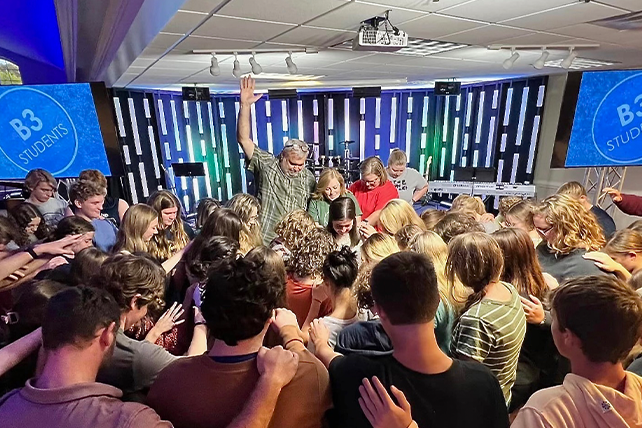NASHVILLE (BP) — It isn’t groundbreaking to say teenagers and young adults are curious about the world and – to quote Michael W. Smith – their place in it. The amount of available information, however, may also be contributing to a distrust beyond those in their immediate vicinity.
Billy Christol has worked with teenagers over the last 33 years, 23 of them in student ministry. Recent events, he said, have generated an environment where the pursuit of truth is still as relevant as the day Pontius Pilate asked about it.
“It is a unique generation in that students have the world’s most powerful search engine in their pocket during their teen years,” said Christol, associate pastor of students at Burning Bush Baptist Church in Ringgold, Ga. “At the same time, they are seeing heightened cultural and political unrest mixed with the lowest morals in marketing and advertising ever.
“As a result, they’re desperate to find truth.”
A recent Barna Group study of those ages 13-17 revealed that 77 percent of U.S. teens are at least “somewhat motivated” to continue learning about Jesus Christ. Respondents were divided into groups defined as “Committed,” “Nominal” and “All Others.”
In the study’s terms, “Committed” Christians self-identify as Christian and say they have made a personal commitment to follow Christ. “Nominal” Christians also self-identify as Christian, but have not made a personal commitment to follow Christ. “All Others” do not identify as Christian or do not know who Jesus is.
Teens are not as helpless in a technology-laden world as adults may think, Christol said. They are the natives and can navigate the landscape, and thus are more savvy than given credit for.
“Teens are more curious than ever and have the tools to satisfy that curiosity,” Christol said. “They know that almost nothing is true at face value and almost everyone and everything that influences them is lying. As a result, they will research anything they find interesting.”
Unsurprisingly, 95 percent of “Committed” teens view the Bible as a trustworthy source of information to learn more about Jesus. Other categories like “another Christian” and “a church leader” each received similarly high marks (88 percent).
But respondents also placed a high level of faith in themselves as a source for knowing about Jesus. “Committed” Christian teens led the way at 83 percent, followed by “Nominal” Christians at 68 percent. A little over half of “All Others,” the group that did not identify as Christians or were unsure who Jesus is, felt they were nevertheless a trustworthy source.
“Nominal” Christian teens placed faith in themselves as a trustworthy source just less so than they did the Bible (71 percent), but more than “another Christian” (65 percent) or “church leader” (63 percent). Only “family” (58 percent) was seen as a more trustworthy source among “All Other” teens, after themselves.
Matthew Emerson, professor of religion and dean of theology, arts and humanities at Oklahoma Baptist University, called that finding a function of modernity/post-modernity.
“If you can’t trust Authority with a capital ‘A’ – in this case, the Church and the Bible – you feel you can trust your own cognitive abilities and community,” he said.
That part of the study also concerned Christol.
“Those numbers should be much lower than any other source,” he said. “Students have lost trust in the Church and church leaders. Their parents are making little effort to be the spiritual leader and, as a result, they find the Bible irrelevant.”
But, he added, there is an upside.
“This is an opportunity. If we act now, we can flip ‘entertainment ministry’ to true discipleship evangelism. That what teens want,” Christol said.

